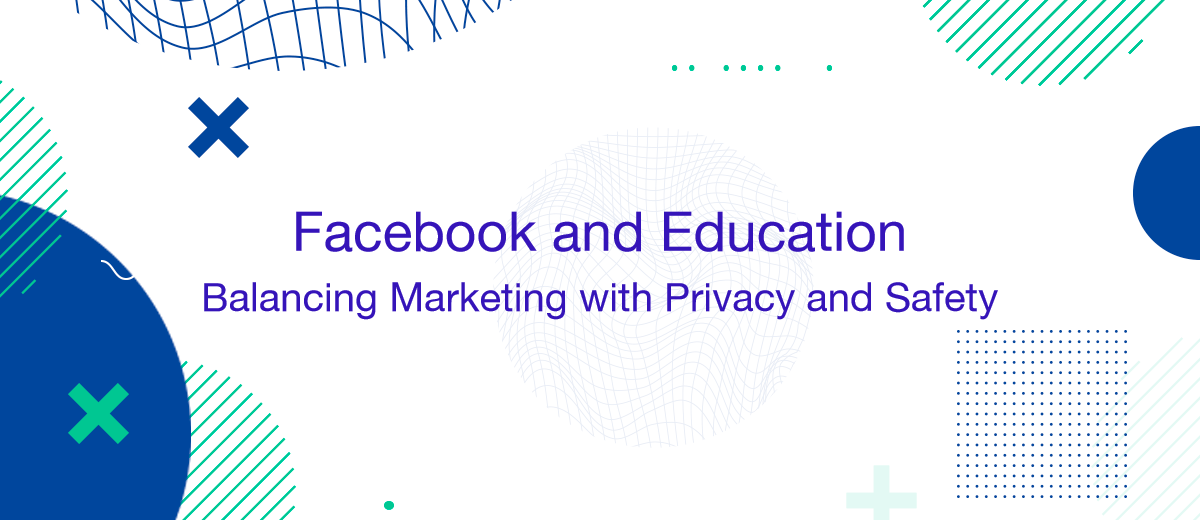Facebook has afforded us ample opportunities for socialization, self-promotion, and business growth. Connecting us like never before, the giant social media network has revolutionized the way we communicate, learn, and market ourselves. But every coin has two sides. Take the Cambridge Analytica Scandal, where millions of Facebook users accused the site of using their data without consent. The information was allegedly used for political marketing. Thankfully, Facebook has since been trying to reimagine itself as more considerate, attesting to better privacy policies. But it’s still important to stay agile in the face of possible privacy breaches, especially for educational institutions. We offer the best tips for addressing privacy and safety concerns that can ensure young people thrive in safe, educational settings.
Safeguarding Student Data
The vast amount of student data that educational institutions possess—from academic records to contact information—creates a rich mosaic of individual identities. This information is unmatched for effective Facebook marketing, offering valuable insights into students' likes and dislikes, habits, and behavioral patterns. This can help colleges improve their services by using proven data-driven tactics, effectively customizing their offerings based on ever-changing requirements and demand.

By leveraging valuable data, educational institutions can build expertly targeted, individualized marketing campaigns that appeal to their student base. By delving deep into students' interests, they can craft messages that ensure seamless and valuable engagement. What’s more, the correct usage and analysis of data can help foster a sense of community where every student feels heard and supported.
But with great power comes great responsibility. Institutions must use student data with utmost caution. First things first, it's important to follow all data protection guidelines and get students' approval before ever using their information. As the core facilitators of knowledge acquisition worldwide, schools and colleges bear exceptional responsibility to speak out in support of students' right to privacy. To this end, they must take proactive measures. Implementing strict data security policies including a DMARC policy and restricting access to sensitive information can be some of those.
Tackling Cyberbullying
Cyberbullying is an extremely pressing problem nowadays. In order to foster an atmosphere of respect and compassion online, educational institutions must actively confront this problem. Establishing clear norms and reporting systems for dealing with cyberbullying incidents may help build a secure and welcoming digital environment for all students. This way, institutions may help create a friendlier and healthier online community.
Here's what colleges can do to combat cyberbullying:
- Define Anti-Cyberbullying Policies: Create and disseminate definite rules and regulations that expressly state that cyberbullying is not acceptable in the academic community.
- Encourage Digital Citizenship Education: Include lessons on responsible online conduct, moral internet usage, and the long-term effects of cyberbullying on human psychology.
- Build Anonymous Reporting Channels: Encourage anonymous reporting (such as online forms or specific email addresses) that allows students to report cyberbullying incidents without worrying about harm.
- Train Faculty and Staff: Teach staff how to recognize the symptoms of cyberbullying and help those affected.
- Hold Educational Events: Routinely hold lectures and workshops to help students identify cyberbullying behaviors and learn how to react safely and productively.
- Monitor Social Media Platforms: Make sure all social media sites are monitored regularly to remove any offensive or harmful content promptly.
- Promote Positive Online Interaction: Encourage students to interact constructively with one another to foster a culture of respect and compassion.
- Encourage Support Services: Provide psychological counseling for the victims.
- Engage in Dialogue: Facilitate direct discussions among students engaged in cyberbullying incidents to encourage conflict resolution.
These are just a few of the proactive steps colleges can take to protect their students. All educational institutions should take any allegations of cyberbullying seriously and look into them thoroughly to resolve the problem right away.
- Automate the work with leads from the Facebook advertising account
- Empower with integrations and instant transfer of leads
- Don't spend money on developers or integrators
- Save time by automating routine tasks
If a student has been bullied on Facebook, for instance, colleges should work with the platform to handle the problem and take necessary measures to prevent repeat occurrences.
Cyberbullying needs to be addressed using a multifaceted strategy that includes prevention, education, teamwork, and quick response. All educators must work together to make sure the educational setting continues to be a refuge of respect, empathy, and inclusion.
Educating for Responsible Social Media Use
At a time when social media giants have an enormous effect on young adults, colleges must also adopt the function of digital mentors to educate students on appropriate social media use. By promoting open dialogue on the ethical implications of digital citizenship, educational institutions can promote a culture of tech-literate and responsible critical thinkers.
True, the modern tech-obsessed era provides ample opportunities to students. Whether they’re researching the best essay writing services online or preparing for an arduous exam, all information they need can be found online with a click of a button. But an increasingly digitized world also means that students are flooded with content non-stop. In this context, the ability to identify trustworthy information is crucial.
Colleges should encourage students to question, check, and assess every bit of information they find online. This can ensure, for instance, that a deceptive Facebook marketing campaign will never again tempt students into purchasing something they don't need. Through interactive quizzes, entertaining exercises, and real-life case studies, students learn to examine the validity of sources and identify biased information. This helps foster a healthy dose of skepticism and a heightened sense of awareness.
Empowering Student Advocacy
Educational institutions can capitalize on the worldwide influence of student activism to advance internet privacy and safety online. They can help build grassroots movements to raise awareness of online security best practices and encourage students to advocate appropriate social media use. By including students in the development and execution of change-oriented projects, colleges can empower the next generation of change agents to be aware of the possible dangers and drawbacks of social media.
What's more, colleges can hold forums where students talk about their experiences with internet privacy and safety. Whether told in movies, blogs, or live events, these discussions can have a transformative effect on building a safer online environment for all. To honor student advocates for their work, educational institutions can organize yearly awards ceremonies or other recognition events.
This way, colleges can have a revolutionary impact that goes beyond the classroom walls. Student advocates will spread the word in their communities, resulting in a positive change in online habits throughout a vast social media landscape.
The Bottom Line
Facebook has altogether altered the way educational institutions market their services and interact with students, opening up a world of opportunities for socializing and economic growth. However, colleges must be aware of the risks to the privacy and security of their students to leverage Facebook marketing to its full potential. With due dedication, they can establish and maintain a safe and welcoming digital space where young minds flourish and all voices are heard equally.
You probably know that the speed of leads processing directly affects the conversion and customer loyalty. Do you want to receive real-time information about new orders from Facebook and Instagram in order to respond to them as quickly as possible? Use the SaveMyLeads online connector. Link your Facebook advertising account to the messenger so that employees receive notifications about new leads. Create an integration with the SMS service so that a welcome message is sent to each new customer. Adding leads to a CRM system, contacts to mailing lists, tasks to project management programs – all this and much more can be automated using SaveMyLeads. Set up integrations, get rid of routine operations and focus on the really important tasks.

